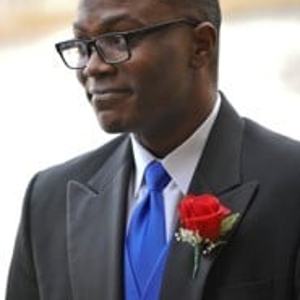Diversity Is Important: Five Black Psychologists You Should Know
Author:
Dorian Capers
The place is New Orleans, Louisiana and a 6-year-old girl has just arrived at her new school several blocks from her home. Parents and their children line the sidewalks as she, accompanied by her mother and four federal marshals, enters the school. This is the year 1960, and Ruby Bridges sits in the principal’s office after walking through a flurry of racial slurs, death threats from adults, and other chaos. After Louisiana was federally forced to desegregate their schools, Ruby was the first African American student bused to a desegregated, white school in the wake of the historic Brown v. Board of Education legal case. Could Ruby understand the gravitas of this moment as a child? Did she even recognize racial identity as a 6-year-old? These questions were answered during that critical trial against segregation in 1954 due to critical contributions from black psychologists. Here are five black psychologists you should know.
1. Kenneth Bancroft Clark, Ph.D. (1914-2005) and Mamie Phipps Clark, Ph.D. (1917-1983)
The Clarks offered ground-breaking research on the self-esteem of children and how race, color, and status influence them. Have you heard of the famous Doll Test? This was an experiment in which children, between ages 3 and 7 years, were shown four dolls that were identical except for their skin tone and asked to choose which doll they preferred and what attributes they would give to the doll. Children as young as 3 years showed a bias toward white dolls versus the darker-skinned dolls and gave positive attributes to lighter-skinned dolls and negative attributes to darker-skinned dolls. The pair of doctors reasoned that “prejudice, discrimination, and segregation” were inherently detrimental to the self-esteem of African American children. Moreover, these young children were internalizing the negative views society had about them. This finding greatly impacted the Brown v. Board of Education trial along with the testimony of several experts.
2. Herman George Canady, Ph.D. (1901-1970)
Herman George Canady was the first psychologist to investigate if the race of a psychological test examiner was a factor in administering IQ tests. He would go on to suggest in his master’s thesis, “The Effects of Rapport on the IQ: A Study in Racial Psychology,” additional criteria for adequate testing environments for diverse peoples. He would also serve as an expert witness in several segregation and employment discrimination cases for the NAACP. His efforts in academia with regard to training black psychologists paved the way for many black psychologists of today.
3. James Morton Jr., Ph.D. (1911-1974)
James Thomas Morton Jr. was drafted into the army and toward the end of his military career was given designation as a military psychologist, the only black American to receive such a title during World War II. He went on become the first black chief psychologist for the Department of Veterans Affairs and was a pioneer in clinical psychology for African Americans, collecting data in regard to intelligence of black Americans using the Wechsler-Bellevue Intelligence Test.
4. Inez Beverly Prosser, Ph.D. (1895-1934)
Inez Beverly Prosser was the first African American woman to receive a doctorate in psychology. Her research focused on the social and psychological effects of desegregation on African American students. She found that students in desegregated schools faced increased social barriers to learning and were less secure. Black students in segregated schools received more affection, attention, and support, indicative of the impact of racism within integrated schools at the time.
5. Francis Cecil Sumner, Ph.D. (1895-1954)
Francis Cecil Sumner was the first African American to receive a doctorate in psychology. His research focused on racial equality and justice in America. Sumner also fought for psychology to be set up as its own academic department and was the head of the department at Howard University after its creation. Sumner, as the professor and mentor, taught many black psychologists who were influential, such as Kenneth Bancroft Clark whose research was pivotal in the Brown v. Board of Education case.
Diversity in culture and ethnicity galvanized certain individuals into the calling to scientifically investigate specific inquiries with regard to their culture or race. I believe that the inclusion of diverse voices in the study of psychology has only deepened the knowledge in the field. As we become a more integrated world, I believe we will see that diversity of thought, background, and other characteristics will further enhance our understanding of the world around us.
If you or someone you know is struggling, there is help. Take a look at our complimentary support groups, and in honor of Black History Month, I’d like to highlight our Monday Evening Mental Health Support Group for People of Color.
Citations
- Michals, Debra. "Ruby Bridges." National Women's History Museum. 2015. www.womenshistory.org/education-resources/biographies/ruby-bridges.
- American Psychological Association. https://www.apa.org. 2012. Featured Psychologists. [online] Available at: <https://www.apa.org/pi/oema/resources/ethnicity-health/psychologists> [Accessed 16 December 2021].
- NAACP Legal Defense and Educational Fund. 2021. Brown v. Board: The Significance of the "Doll Test." [online] Available at: <https://www.naacpldf.org/ldf-celebrates-60th-anniversary-brown-v-board-education/significance-doll-test/> [Accessed 16 December 2021].
- Psychology.okstate.edu. 2021. African American Pioneers in Psychology: Brief Biographies. [online] Available at: <https://psychology.okstate.edu/museum/afroam/bio.html> [Accessed 17 December 2021].
Struggling with an eating disorder?
One conversation can make all the difference. Connect with us today.
Get Help NowConnect With Us

